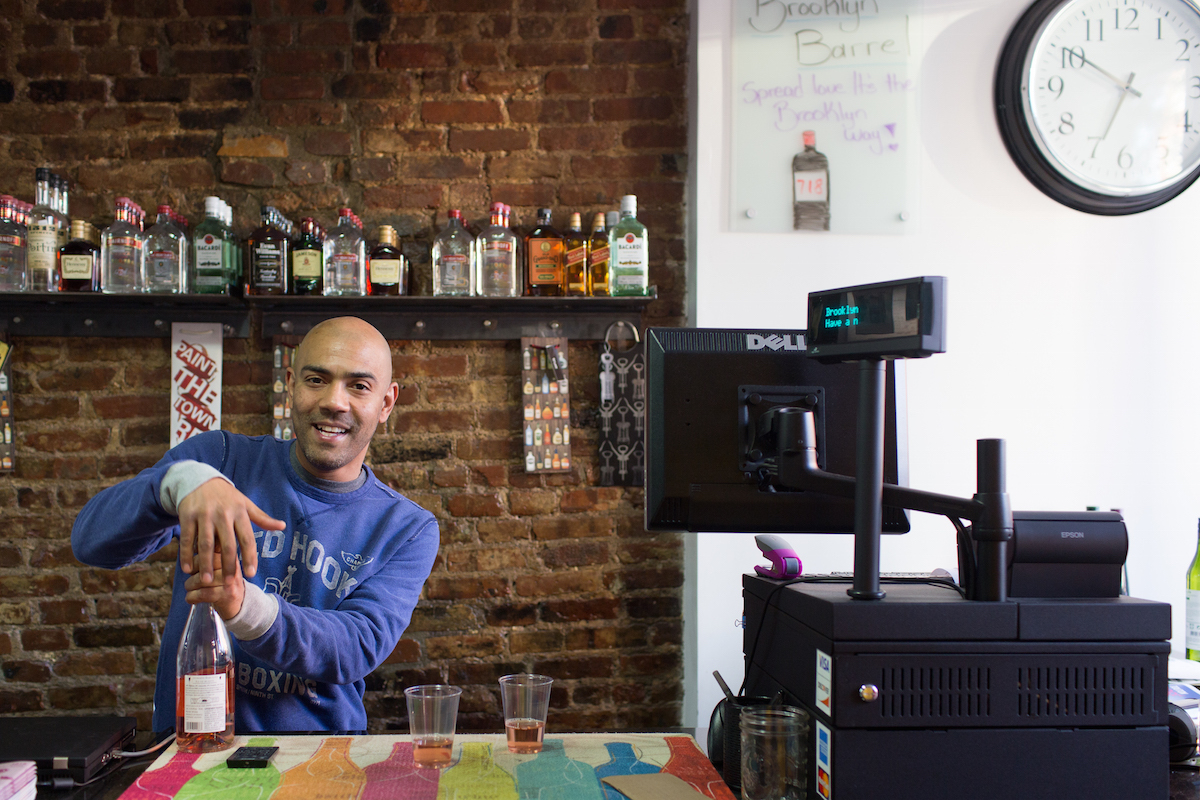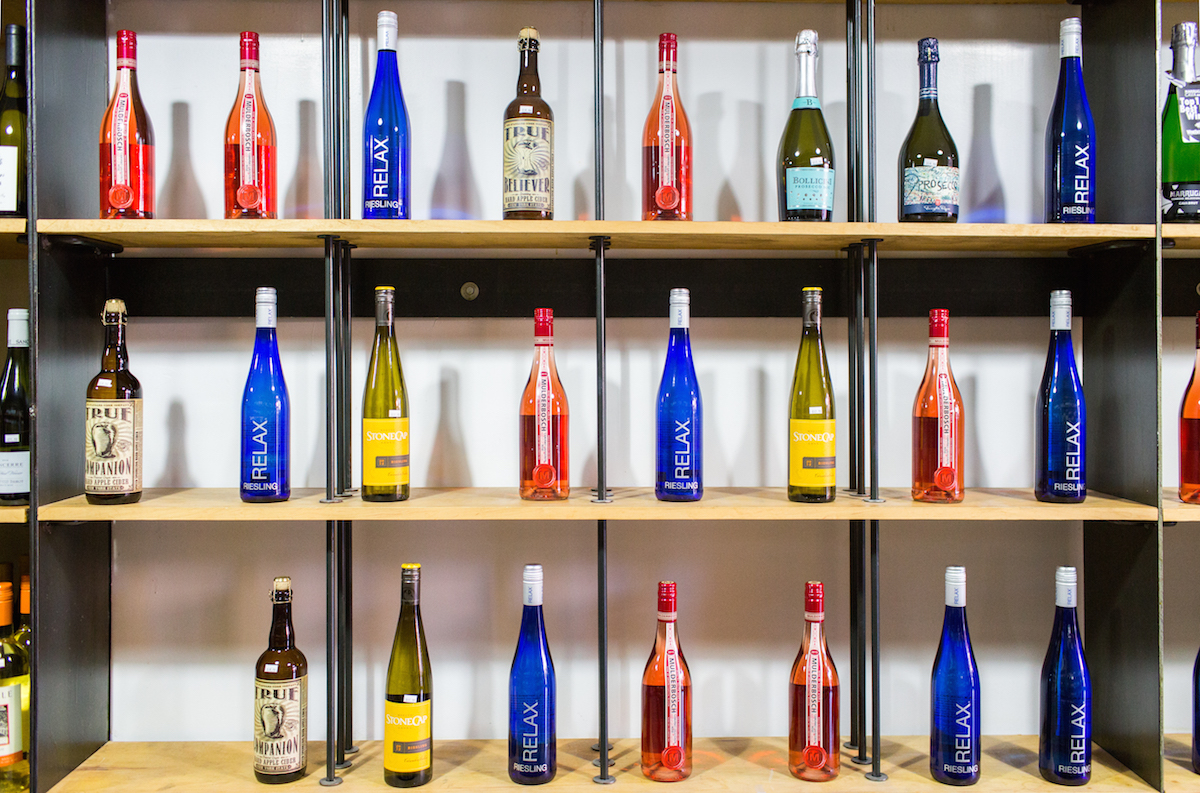Before he sold Sauvignon Blanc and Pinot Noir, Frank Betances was convicted of gun possession and conspiracy to sell crack cocaine.
Betances isn’t one to be bound by convention; after all, he can trace his lineage to Ramón Emeterio Betances , a father of the Puerto Rican liberation movement and early abolitionist. In his role as manager and wine buyer at Brooklyn Barrel in Gowanus, Frank is friendly and has an easy smile—it’s tough to imagine him hustling on the streets or during his time “up north.” But those experiences were formative.
Franks says he follows an “old school code.” He and his siblings grew up in Sunset Park, Brooklyn, the children of immigrant parents who came from the Dominican Republic in 1970. He credits that sensibility with shaping his business savvy by helping him to look at the long game, to take care of his employees, and to practice a moral code.
When he and his friends watched other guys on the block, they saw that when there “was trouble, they didn’t take care of it. We knew we could handle it and make money here.” He had Spanish language skills that his friends didn’t have and family connections in Washington Heights, then known as “the drug capital of New York City .”
As Frank says, “there wasn’t anything you couldn’t get there.”
 Frank went from prison to pouring wine. Photo by Mackenzie Anne Smith
Frank went from prison to pouring wine. Photo by Mackenzie Anne Smith
During his years hustling, Betances honed his intuition and ability to read people quickly. “Being in the street,” he recalls, “I met different people, from different backgrounds, learned their habits, their routines. Drug addicts, sex workers, housewives, businessmen, dealers. You know all their problems.”
That intuition is the same one he says now helps in customer service at the wine store; he has patience with tough customers and can sense if someone is having a bad day. He will happily guide a customer to select a bottle of wine based on what they’re looking for: whether to sip on or enjoy with a meal, considering the weather and time of day, or what pairs well with the food. He recognizes that it’s essential to carry what customers want, not just what he prefers.
“I listen to feedback from customers,” he says. “Like Chardonnay: it’s not appealing to me, but I need to have them, to be able to describe them.”
Frank served three years in New York City and upstate New York after being pulled over in a car with approximately 1,000 grams of cocaine. When he got out of jail, he struggled to reintegrate. A good friend of his owned a wine shop in Red Hook, and wine resonated with Frank because it presented a legal opportunity to hustle.
“There was a time when alcohol was illegal, and people chased it,” he told me over drinks in a booth at Dram Shop in Park Slope. “But it was a part of my life. I had fun and it never harmed me.”
While wine wasn’t necessarily a part of Dominican culture, Betances saw it as a way to learn about geography, weather, food, people, and culture.
 Some of the wines on sale at Brooklyn Barrel. Photo by Mackenzie Anne Smith
Some of the wines on sale at Brooklyn Barrel. Photo by Mackenzie Anne Smith
He started by teaching himself, but soon met a salesman who would visit his friend’s store daily to taste and discuss wines.
“He was wasting his time because they did so little business with us, but we just vibed,” he says.
Over the next five years, he absorbed information from his mentor about regions, varietals, and flavor profiles. That led him to convince his father to open Brooklyn Barrel.
Frank’s intelligence and willingness to learn helped him in jail, as well. As one of the few college-educated men serving time, he worked as a teacher’s aide for 15, then 25 cents an hour, helping his fellow inmates with basic math and reading skills. “It sounds funny,” he says, “but it helps. And I budgeted that, too.”
“Some people [are kind] because they’re scared. But jail needs warmth and comfort in a real way. And real recognizes real. It’s a survival thing.” His thoughtfulness and sense of calm earned him the nickname “Friendly Frank.”
Betances credits his strong faith with helping him during his time in prison. His parents didn’t force religion on their kids, but they shared their belief that “God is great and necessary in life.”
“You don’t mess with a man who would pray on his knees in front of 90 dudes,” he says.
Later, the birth of his son also helped him transition from a life on the streets. “Crime and kids don’t mix. I knew my son would be another statistic.”
Frank’s attention to detail is apparent. He helped build the shelves in the Gowanus Shop, which opened five years ago. The place is meticulous, with bottles carefully lined up. Customers often remark on how beautiful the minimal design is. And it doesn’t hurt that Frank has an almost photographic memory.
“Some people call me the ‘Elephant Man,'” he jokes, “My memory is disgusting.”
Despite his knowledge and enthusiasm for wine, Frank can’t obtain a liquor license to open his own store; convicted felons aren’t legally allowed to sell alcohol, among countless other setbacks people like Frank encounter after serving time. He’s working with an attorney to apply for a Certificate of Good Conduct, Relief, or Disposition , which could reduce some of those barriers.
Undeterred, Frank continues to expand his knowledge of wine.
“I’m dealing with something that’s living, that I can’t master,” he says. “I just love it. I got this.”










